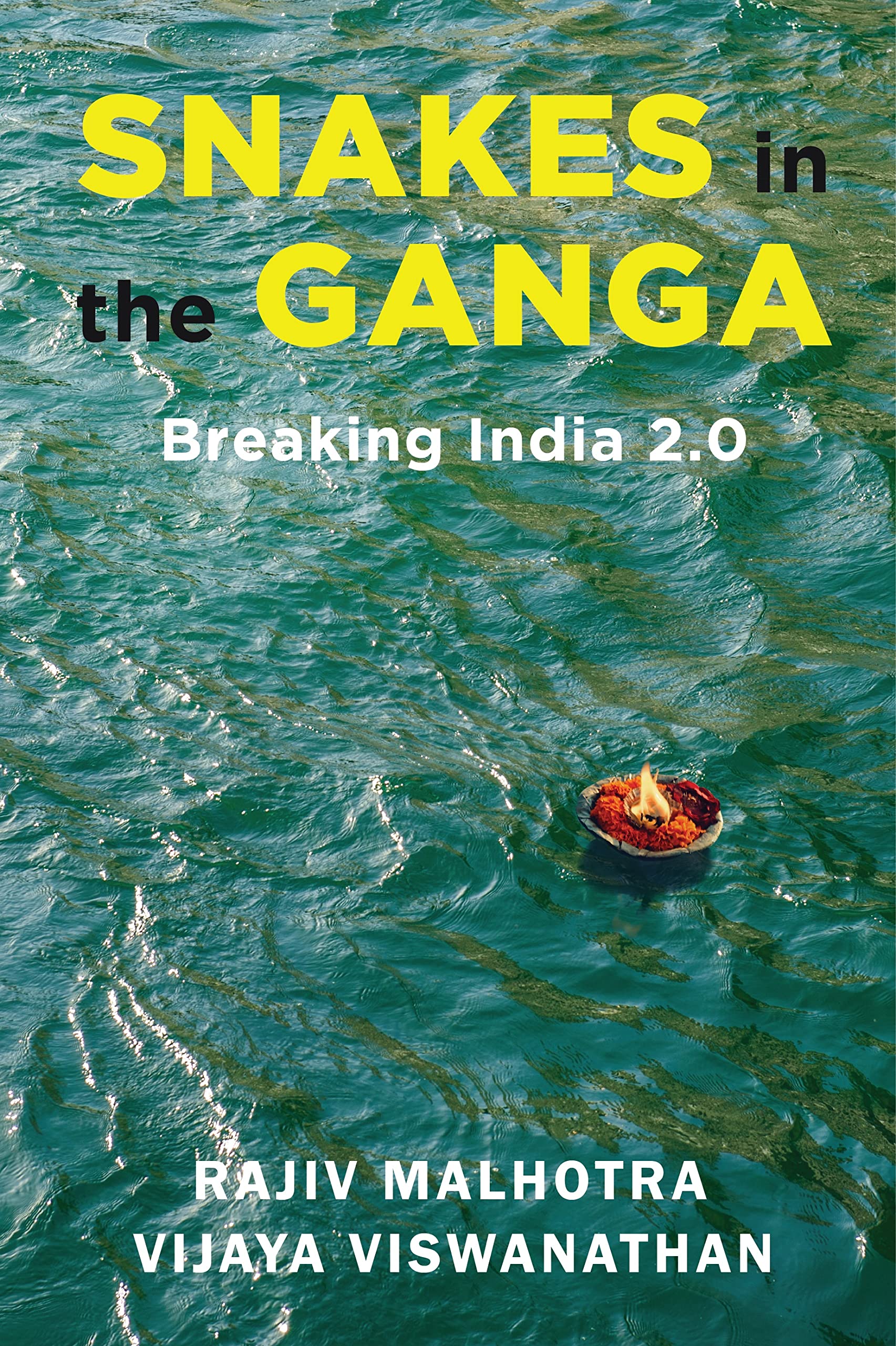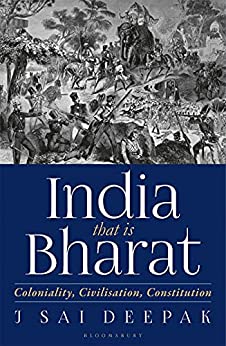When this blog started in 2002, the only history books available were those written by Marxist historians. Looking at books on my desk in 2022, I am delighted to see many with a Bharatiya voice, and I can’t keep up (Good problem).
At the end of every year, I will try to narrow down all the books I have read and recommend just a handful of the best. Here are some of my favorite books of 2022. This does not mean that they were released in 2022. I either read them or re-read them.
Snakes in the Ganga: Breaking India 2.0 by Rajiv Malhotra and Vijaya Vishwanathan

Recently several buildings on Jawaharlal Nehru University (JNU) campus were defaced with anti-Brahmin slogans. Some of the slogans on the wall were “Brahmins Leave The Campus,” “There Will Be Blood”, “Brahmin Bharat Chhodo” and “Brahmino-Baniyas, we are coming for you! We will avenge.” Now “South Asians” in the United States are facing open discrimination by Brown University. This reminded me of the news reports that Jewish Students Are Facing Growing Hostility and they now have to hide their Jewish identity to survive in American Universities.
In this book, Rajiv Malhotra and Vijaya Viswanathan explain how Breaking India 2.0 ideologies, run by Indians are Harvard, are being imported into India without judgment. The intention of ideologies like Critical Race Theory (CRT) is to break down society; to achieve this aim, victimhood is weaponized. The book goes into how CRT has been taken over by the Leftists in America, how Harvard has adapted CRT to Critical Caste Theory, and how atrocity literature from Harvard is being used to dismantle India. Sadly these are funded by Indian billionaires who just want a Western stamp of approval.
A detailed review will come next year.
Savarkar: Echoes of a Forgotton Past, Vol. 1: Part 1 by Vikram Sampath

Savarkar may not have been controversial, but he has been made so. Currently, one cannot challenge the Gandhi-Nehru narrative, so what would happen to a person who did that when Gandhi was alive. On hearing his name, there are only polar opposite reactions; there is no middle ground. The truth, as Vikram Sampath says in the first part of Savarkar’s biography, is somewhere in between.
Savarkar was an opponent of Gandhi, Congress, and the whole “show your other cheek” ideology and was never given due credit for his role in the freedom movement. This book is about his early days, till his incarceration at the Cellular Jail in Andaman. This book reads like fiction, especially his days as a law student in London. The book gives context by describing the political atmosphere of that time and various groups fighting for independence. We learn about Savarkar through his early life, influences, and revolutionary activities. We get a complete picture of the man from his poems, writings, and speeches.
Related Articles:
India, that is Bharat: Coloniality, Civilisation, Constitution by J Sai Deepak

The book Snakes in the Ganga narrates how Breaking India 2.0 forces are exporting Critical Race Theory to India to dismantle India. J Sai Deepak saw this at play with systematic isolation, ostracization, and digestion of Indic strands. The overt hostility hits you every day. The attack on Hindu festivals, the attack on our traditions in Hindi Cinema, and academic Hinduphobia are just a few examples. There is a concerted effort to split sub-identities from their Indic civilizational identity.
This book is part of a trilogy on Bharat that explores the influence of European colonial consciousness. Sai Deepak applies a decolonial lens to shed the European normative framework we have come to accept as the norm. Instead, the book relies on the work of suppressed Indian voices to build the case for the Bharatiya perspective.
Related Articles:
Stories From Inscriptions: Profound Real-life Tales from Hindu Cultural History by Sandeep Balakrishna

Sandeep’s book is a collection of 15 stories based on inscriptions. These stories were previously unknown except to scholars. This book is meant for the general audience and is written in the style of popular narrative history. The purpose is to introduce incidents from our past as narrated by kings, businessmen, bards, and warriors in their own words. These stories come from Andhra Pradesh, Karnataka, Madhya Pradesh, Maharashtra, Rajasthan, and Tamil Nadu and span a timeline from the 9th century CE up to the 17th century CE. This book does three things. First, it shows how Bharat was unified as a civilization state. Second, it refutes many narratives about how uncultured and backward we were till the invaders and colonizers civilized us. Finally, it reveals many aspects of our culture we were unaware of. (Review)
The Case That Shook the Empire by Raghu Palat and Pushpa Palat

Who in their right mind would think that an Indian would get justice in the British legal system.? Between a person responsible for the Jallianwala Bagh massacre and a person arguing against the atrocities, whom would the so-called British legal system side with? Would the British system turn a blind eye to one of their own who had committed an unforgivable crime?
The answer is obvious now, as it was in 1924.
This book is about a defamation case filed by Michael O’Dwyer, the Lieutenant Governor of Punjab during Jallianwala Bagh, against Chettur Sankaran Nair, a former Member of the Viceroy’s Executive Council. The trial lasted five-and-a-half weeks in London. There was nothing that indicated that this would be a fair trial. The judge was a racist who saw nothing wrong in Jallianwala Bagh, and the jury agreed with him. (Review)
Related Articles: